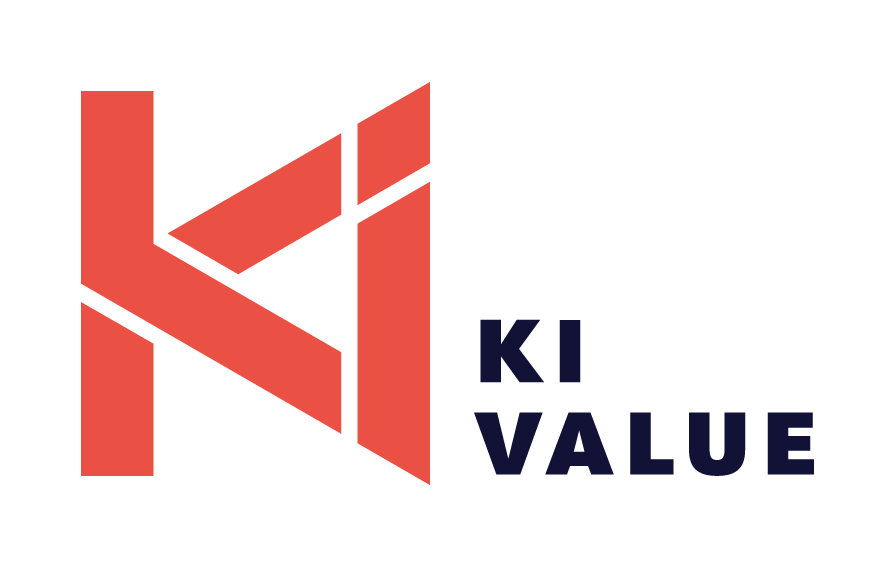To make KIVALUE work and improve your user experience, we log user data and employ essential cookies. By using KIVALUE website, you agree to our Privacy Policy, including cookie policy.
New Partnership with Pricen in Italy: Read Here
Unveiling the Impact // How Fashion Week Influences Clothing Sales
Introduction
Fashion Week is a highly anticipated event in the world of fashion, where designers showcase their latest collections, trends are set, and industry insiders gather to celebrate creativity and innovation.
But beyond the glitz and glamour of the runway, Fashion Week also has a significant impact on clothing sales.
In this article, we'll explore the effects of Fashion Week on clothing sales, from the immediate boost in demand for new styles to the long-term influence on consumer preferences and purchasing behaviour.
Fashion Week is a highly anticipated event in the world of fashion, where designers showcase their latest collections, trends are set, and industry insiders gather to celebrate creativity and innovation.
But beyond the glitz and glamour of the runway, Fashion Week also has a significant impact on clothing sales.
In this article, we'll explore the effects of Fashion Week on clothing sales, from the immediate boost in demand for new styles to the long-term influence on consumer preferences and purchasing behaviour.
Setting the Stage: The Hype Surrounding Fashion Week
Fashion Week, held in major fashion capitals around the world such as New York, Paris, Milan, and London, serves as a platform for designers to unveil their latest creations to a global audience of buyers, influencers, celebrities, and fashion enthusiasts.
The buzz and excitement generated by Fashion Week create a sense of anticipation and excitement among consumers, who eagerly await the release of new collections and trends.
Fashion Week, held in major fashion capitals around the world such as New York, Paris, Milan, and London, serves as a platform for designers to unveil their latest creations to a global audience of buyers, influencers, celebrities, and fashion enthusiasts.
The buzz and excitement generated by Fashion Week create a sense of anticipation and excitement among consumers, who eagerly await the release of new collections and trends.
Immediate Boost in Demand for New Styles
One of the most noticeable effects of Fashion Week on clothing sales is the immediate boost in demand for new styles showcased on the runway. As soon as a collection is unveiled, fashion-forward consumers rush to purchase pieces from the latest designs, eager to be among the first to embrace the newest trends.
This surge in demand can lead to a spike in clothing sales for brands and retailers, particularly for items that garner attention and generate buzz during Fashion Week. Consequently, effective merchandise planning becomes crucial for ensuring adequate inventory levels and maximising sales opportunities.
One of the most noticeable effects of Fashion Week on clothing sales is the immediate boost in demand for new styles showcased on the runway. As soon as a collection is unveiled, fashion-forward consumers rush to purchase pieces from the latest designs, eager to be among the first to embrace the newest trends.
This surge in demand can lead to a spike in clothing sales for brands and retailers, particularly for items that garner attention and generate buzz during Fashion Week. Consequently, effective merchandise planning becomes crucial for ensuring adequate inventory levels and maximising sales opportunities.
Influencing Consumer Preferences and Purchasing Behaviour
Fashion Week plays a significant role in shaping consumer preferences and influencing purchasing behaviour. The trends and styles showcased on the runway often set the tone for upcoming seasons, dictating what will be considered fashionable and desirable in the months to come.
Consumers look to Fashion Week for inspiration and guidance, turning to designers and influencers to inform their clothing choices and stay on-trend.
Fashion Week plays a significant role in shaping consumer preferences and influencing purchasing behaviour. The trends and styles showcased on the runway often set the tone for upcoming seasons, dictating what will be considered fashionable and desirable in the months to come.
Consumers look to Fashion Week for inspiration and guidance, turning to designers and influencers to inform their clothing choices and stay on-trend.

Driving Traffic and Sales for Retailers
For retailers, Fashion Week presents an opportunity to capitalise on the excitement surrounding new collections and trends. By aligning their marketing efforts with Fashion Week events and highlighting products that mirror runway trends, retailers can attract shoppers seeking to replicate the looks showcased on the runway.
This can result in increased foot traffic, higher conversion rates, and ultimately, a boost in clothing sales for retailers both online and in-store.
For retailers, Fashion Week presents an opportunity to capitalise on the excitement surrounding new collections and trends. By aligning their marketing efforts with Fashion Week events and highlighting products that mirror runway trends, retailers can attract shoppers seeking to replicate the looks showcased on the runway.
This can result in increased foot traffic, higher conversion rates, and ultimately, a boost in clothing sales for retailers both online and in-store.
Creating a Ripple Effect Across the Industry
The impact of Fashion Week extends beyond individual brands and retailers, creating a ripple effect across the entire fashion industry. As trends emerge and gain momentum during Fashion Week, they permeate through various sectors of the industry, from mass-market retailers to luxury fashion houses, influencing assortment planning and product development strategies.
Designers and brands take note of emerging trends and incorporate them into their own collections, leading to a domino effect that shapes the direction of fashion for the season.
The impact of Fashion Week extends beyond individual brands and retailers, creating a ripple effect across the entire fashion industry. As trends emerge and gain momentum during Fashion Week, they permeate through various sectors of the industry, from mass-market retailers to luxury fashion houses, influencing assortment planning and product development strategies.
Designers and brands take note of emerging trends and incorporate them into their own collections, leading to a domino effect that shapes the direction of fashion for the season.
Long-Term Influence on Fashion Trends
While the immediate effects of Fashion Week are undeniable, its influence extends far beyond the event itself. The trends and styles introduced during Fashion Week often have a lasting impact on fashion trends for the season and beyond.
What starts as a trend on the runway can trickle down to mainstream fashion, influencing the designs and offerings of retailers worldwide. This long-term influence cements Fashion Week's position as a trendsetting event that shapes the fashion landscape for years to come.
While the immediate effects of Fashion Week are undeniable, its influence extends far beyond the event itself. The trends and styles introduced during Fashion Week often have a lasting impact on fashion trends for the season and beyond.
What starts as a trend on the runway can trickle down to mainstream fashion, influencing the designs and offerings of retailers worldwide. This long-term influence cements Fashion Week's position as a trendsetting event that shapes the fashion landscape for years to come.
Takeaway
Fashion Week's influence on clothing sales is multi-faceted, ranging from immediate demand surges to long-term trendsetting effects.
By unveiling new collections and shaping consumer preferences, Fashion Week drives excitement and sales in the fashion industry.
Retailers and brands can harness this influence to attract shoppers, boost sales, and shape fashion trends for the season and beyond.
Fashion Week's influence on clothing sales is multi-faceted, ranging from immediate demand surges to long-term trendsetting effects.
By unveiling new collections and shaping consumer preferences, Fashion Week drives excitement and sales in the fashion industry.
Retailers and brands can harness this influence to attract shoppers, boost sales, and shape fashion trends for the season and beyond.
At KIVALUE we cover end-to-end
fashion retail processes
fashion retail processes
From connecting merchandising, buying, and planning processes to omnichannel inventory and markdown management
We offer FREE assessment of your current solution requirements.
We offer FREE assessment of your current solution requirements.
ABOUT YOU Success Story to your Inbox
Just pop-in your name and email.
We value your information and won't share it with anyone.
We value your information and won't share it with anyone.
By clicking you agree to our Privacy Policy
let's talk!
Just pop-in your name and email.
We value your information and won't share it with anyone.
We value your information and won't share it with anyone.
By clicking you agree to our Privacy Policy
before we contact you
By clicking you agree to our Privacy Policy


